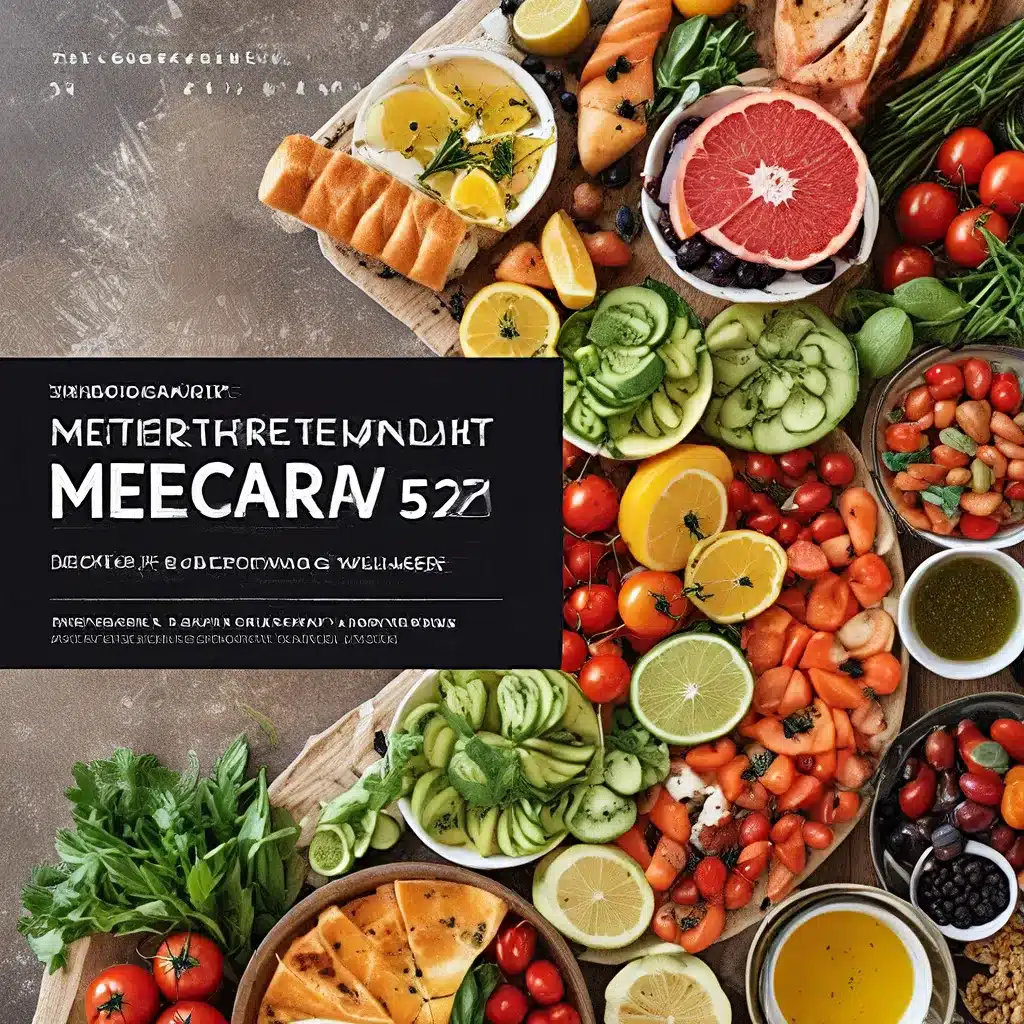
As a self-proclaimed foodie and wellness enthusiast, I’ve always been fascinated by the Mediterranean diet. It’s been hailed as one of the healthiest eating patterns in the world, with a reputation for promoting longevity and overall well-being. But what exactly is it about this dietary approach that makes it so special? Let’s dive in and uncover the secrets behind the Mediterranean diet’s longevity-boosting powers.
The Blue Zones Phenomenon
If you’ve been keeping up with the latest health and wellness trends, you’ve probably heard of the mysterious “Blue Zones” – regions around the world where people routinely live to the ripe old age of 100 or beyond. These places, which include the Nicoya Peninsula in Costa Rica, the island of Sardinia in Italy, and the town of Loma Linda in California, have long fascinated researchers and health enthusiasts alike.
What’s the secret behind these centenarians’ remarkable lifespans? According to the experts, it’s a combination of factors, but diet plays a pivotal role. Interestingly, many of these Blue Zone communities follow dietary patterns that closely resemble the Mediterranean diet, with an emphasis on plant-based foods, legumes, nuts, and modest amounts of meat and seafood.
The Mediterranean Diet Decoded
So, what exactly is the Mediterranean diet, and how can it help you live a longer, healthier life? At its core, the Mediterranean diet is a way of eating that’s deeply rooted in the culinary traditions of countries surrounding the Mediterranean Sea, such as Greece, Italy, and Spain.
The key principles of the Mediterranean diet include:
-
Abundant Plant-Based Foods: The foundation of the diet is made up of a variety of fruits, vegetables, whole grains, legumes, nuts, and seeds. These nutrient-dense foods are rich in fiber, antioxidants, and essential vitamins and minerals.
-
Healthy Fats: The Mediterranean diet emphasizes the use of olive oil as the primary source of fat, along with moderate consumption of fish, nuts, and avocados. These healthy fats are known to reduce the risk of heart disease and inflammation.
-
Moderate Dairy and Poultry Intake: The diet allows for limited consumption of dairy products, such as cheese and yogurt, as well as lean poultry. Red meat is typically enjoyed only on special occasions.
-
Moderate Wine Consumption: The Mediterranean diet includes the moderate consumption of red wine, typically during meals. This is believed to provide additional health benefits when consumed in moderation.
-
Mindful Eating: The Mediterranean lifestyle also emphasizes the importance of enjoying meals with family and friends, taking the time to savor each bite, and being physically active throughout the day.
The Science Behind the Mediterranean Diet’s Longevity Benefits
So, what does the research say about the Mediterranean diet’s impact on longevity and overall health? The scientific evidence is quite compelling:
-
Reduced Risk of Chronic Diseases: Studies have shown that the Mediterranean diet can lower the risk of heart disease, stroke, type 2 diabetes, and certain types of cancer, all of which are leading causes of premature death.
-
Improved Metabolic Health: The Mediterranean diet has been associated with better blood sugar control, healthier cholesterol levels, and a reduced risk of metabolic syndrome, a cluster of conditions that can increase the likelihood of chronic disease.
-
Brain Health and Cognitive Function: Adherence to the Mediterranean diet has been linked to a lower risk of cognitive decline and Alzheimer’s disease, as the diet’s anti-inflammatory and antioxidant properties may help protect the brain.
-
Gut Health and Microbiome Diversity: The Mediterranean diet’s emphasis on plant-based foods, fiber, and fermented foods may promote a healthy and diverse gut microbiome, which has been increasingly recognized as a crucial factor in overall health and well-being.
-
Weight Management and Longevity: Studies have shown that following the Mediterranean diet can aid in weight loss and maintenance, which is important for reducing the risk of obesity-related health issues and extending lifespan.
Incorporating the Mediterranean Diet into Your Lifestyle
Now that you’ve learned about the amazing benefits of the Mediterranean diet, you might be wondering how to incorporate it into your own life. Here are some practical tips:
-
Focus on Plant-Based Foods: Make sure to fill your plate with a variety of fruits, vegetables, whole grains, legumes, nuts, and seeds. These nutrient-dense foods should make up the foundation of your meals.
-
Embrace Healthy Fats: Swap out processed oils and butter for extra-virgin olive oil, and be sure to include fatty fish, avocados, and nuts in your diet.
-
Limit Processed and Red Meat: Aim to enjoy red meat only occasionally, and opt for lean poultry and fish as your primary sources of animal protein.
-
Indulge in Moderate Wine Consumption: If you enjoy a glass of wine, savor it in moderation, typically during meals. But remember, moderation is key when it comes to alcohol consumption.
-
Prioritize Mindful Eating: Take the time to sit down and enjoy your meals with family and friends, and be mindful of your portion sizes and eating pace.
-
Stay Active: Incorporate regular physical activity into your daily routine, whether it’s a brisk walk, gardening, or engaging in a favorite sport or hobby.
Remember, the Mediterranean diet is not just about the food – it’s a holistic lifestyle that emphasizes the importance of social connections, stress management, and an overall positive outlook on life. By embracing these principles, you can unlock the secrets to living a longer, healthier, and more fulfilling life.
So, what are you waiting for? Embark on your own Mediterranean-inspired wellness journey today, and discover the keys to longevity and vitality. The path to a healthier, happier you starts right here, right now.

